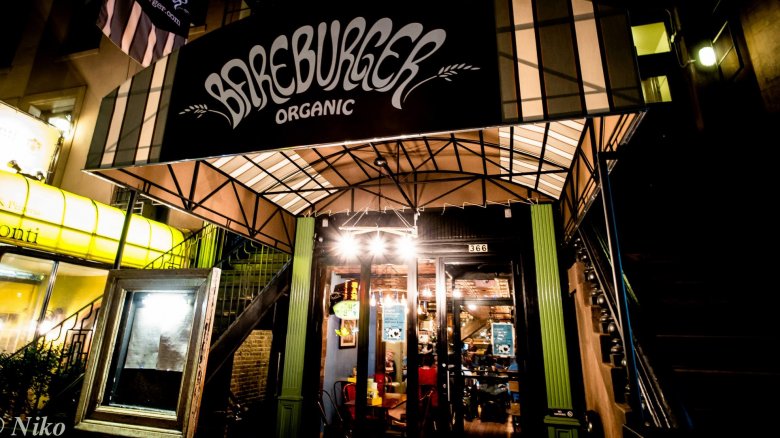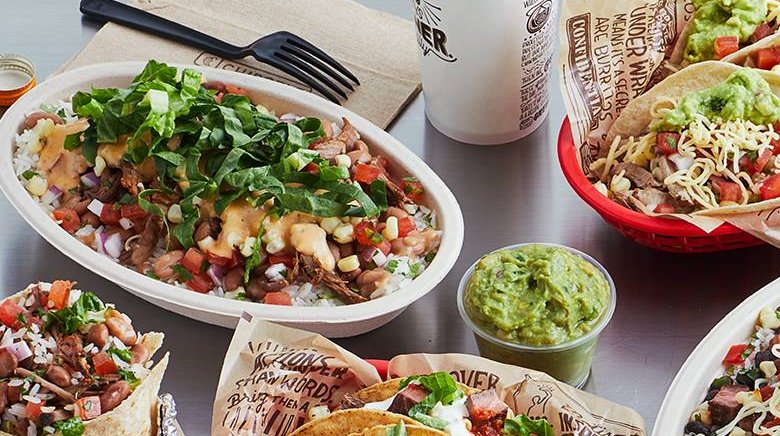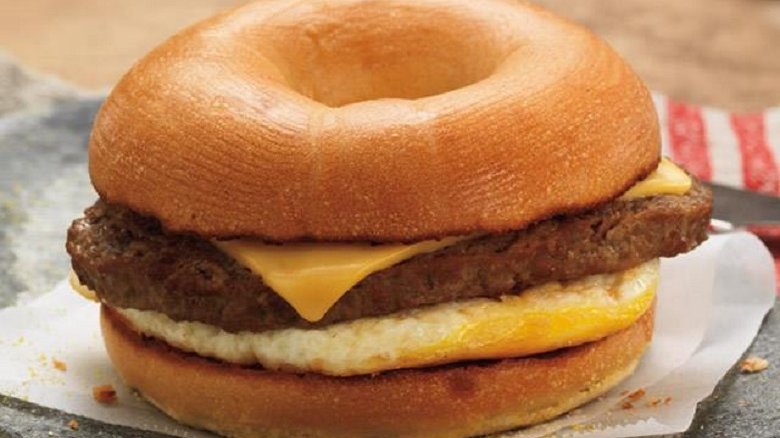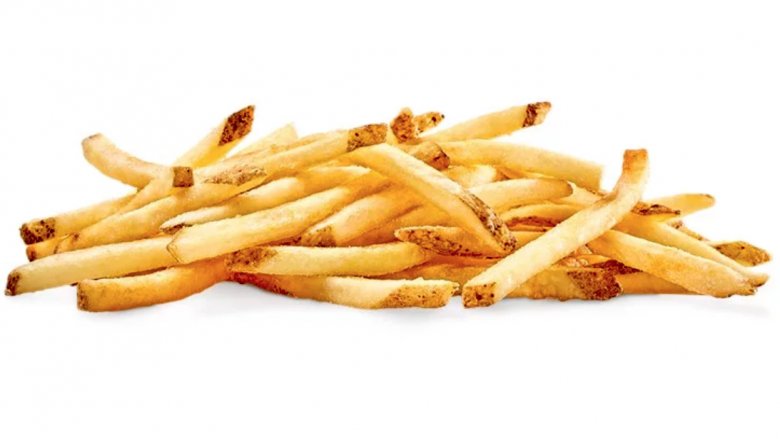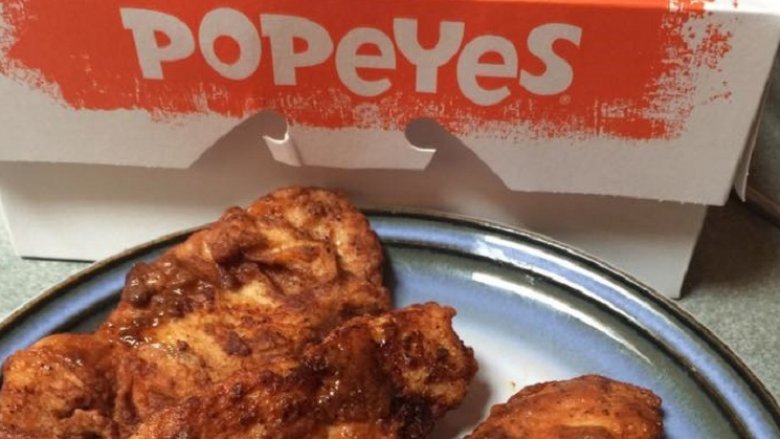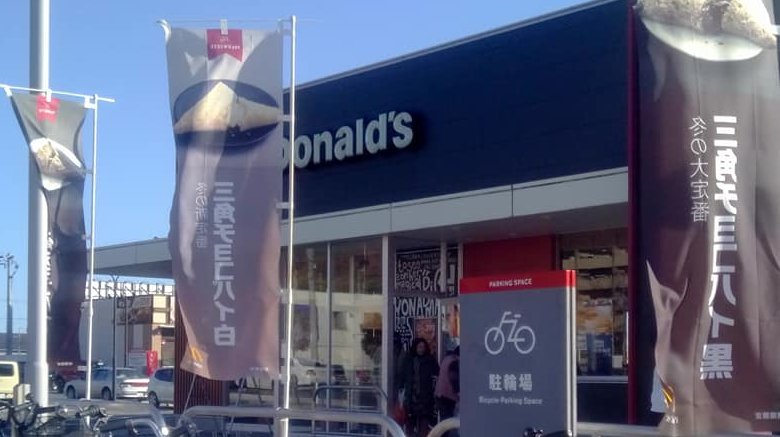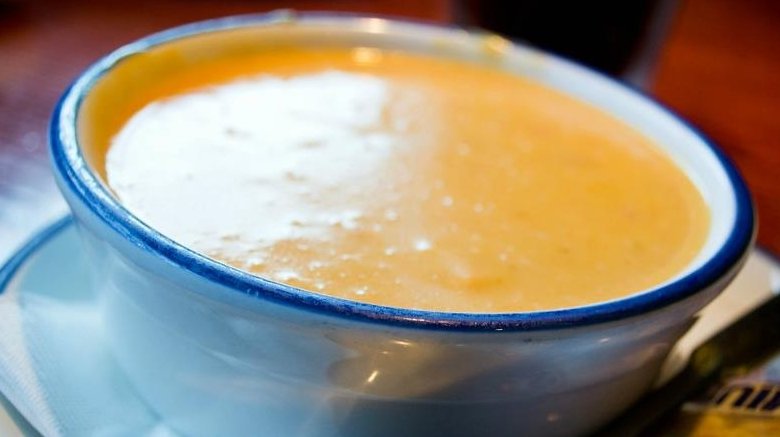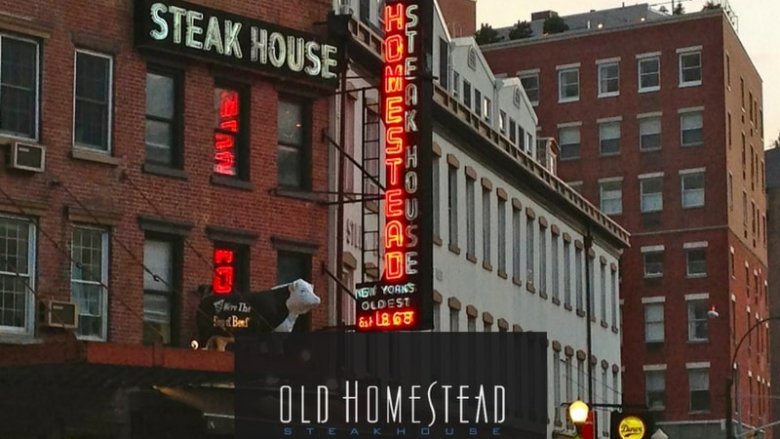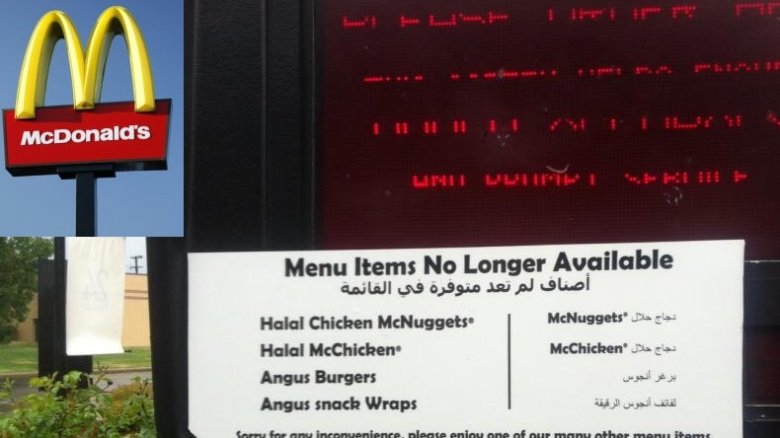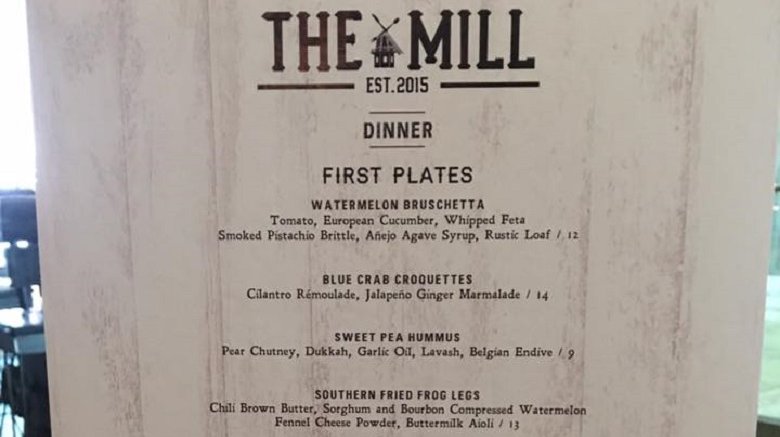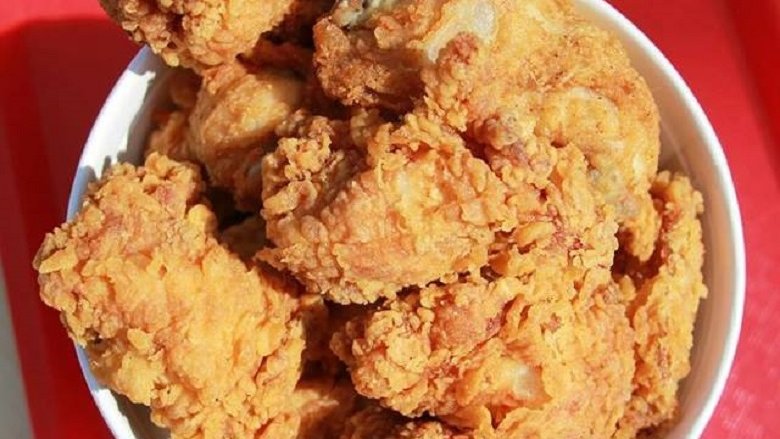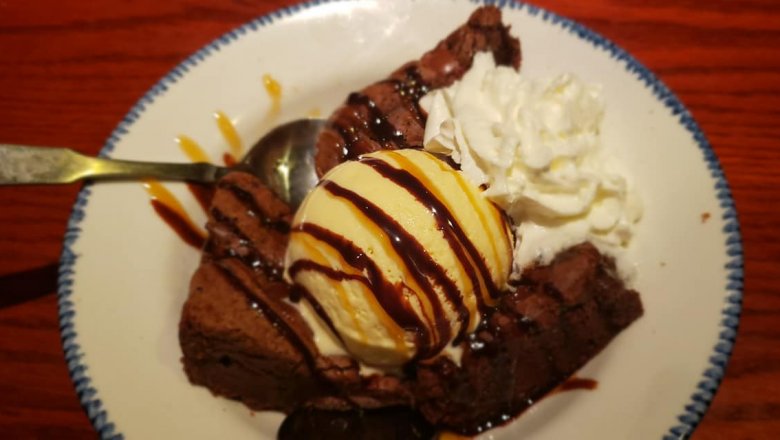Times Restaurants Lied To You About What's In The Food
By now we've all come to expect that much of our news is fake, and we know not to believe that there's much truth in advertising or politics. But who knew that even the food we eat is full of deceit?
It's not just a matter of mystery meat and pink slime being served up at fast food joints, oh no. It turns out that even some of the fanciest, priciest restaurants will also tell a few fibs to beef up the provenance of menu items with humble origins.
Food fraud is widespread and considered to be such a problem that Michigan State University has even implemented a program to educate the unwary and help people make safer food choices. Can't spare a few hours to take one of their online courses? No problem. It should only take you a few minutes to click through this rogues' gallery of restaurants that lie, lie, lie.
Bareburger's burgers are less organic than they'd like you to believe
Bareburger, a fast casual micro-chain with locations in the U.S. and even a few in the UAE, Japan, and Germany, says its approach to food is "simple, joyful, and organic." Uh, yeah, more like simple, joyful, and deceitful.
In 2017, Bareburger customer Gil Rosenberg, who frequented the chain for its organic offerings, witnessed a meat supply truck pulling up outside the Forest Hills, Queens location and noticed that the boxes of beef patties being unloaded did not bear the USDA's "certified organic" seal. Instead of just tossing his burger in the trash and asking for a refund, Mr. Rosenberg launched a one-man fact-finding mission in which he eventually got the restaurant CEO to admit that the burgers are only made with 75 to 80 percent organic beef, but that's not what the menu claims. In fact, the website's FAQ says the restaurants use a "100 percent organic blend of brisket, chuck, and short rib."
Mr. Rosenberg wasn't anywhere near done calling Bareburger out. He made up leaflets about their menu misrepresentation and distributed these outside several of its locations. He also called some of the restaurant's suppliers, spoke to journalists, and has recently launched a class-action lawsuit against the company for misrepresenting its products. No word on the outcome yet, but Gil Rosenberg is a food fraud crusader who won't take any (non-organic) bull.
Chipotle falsely claimed their ingredients were GMO-free
Chipotle is another fast casual chain that seems to be pretty casual about truth in advertising. In 2015, they announced with great fanfare that their food would now be GMO-free. They forgot to add a few crucial words, though: "Some of" their food would be GMO-free, not all of it. Tortillas, chips, rice? All good. Ditto the ingredients used to make the salsas and marinades. But wait, what about the meats — were the animals fed on non-GMO grains? And what about the cows that produced the milk used to make the cheese and sour cream?
Um, not so much, it turns out. Questions were asked, lawsuits were filed — one in Florida, soon followed by another in California. Chipotle called in their corporate attorneys and put forth a case that the grounds for the lawsuits were "nonsensical" and that no reasonable consumers would expect that the non-GMO claims would be so strictly applied.
Another big win for the evil, lying corporation, right? Not so fast. In October 2018, the judge in the California lawsuit reversed his original decision to dismiss the case. Depending on the outcome, consumers in California, New York, and Maryland who purchased Chipotle products between April 27, 2015, and June 30, 2016 may have earned themselves... something. Perhaps a free burrito? They should probably ask for the vegan version if they want a truly GMO-free one, however.
Dunkin' Donuts faced a lawsuit over their Angus Steak sandwich
Well, sort of misnamed. The Angus part was true, more or less. "Angus steak" really isn't any more special than any other kind of steak, since the black Angus is the number one breed of beef cattle in the U.S. The "steak" part of the name, however... well. This word, when used by any type of fast-food restaurant, is pretty much synonymous with disappointment, since any "steak" served to you by someone in a paper hat is usually just a fancy name for a plain old burger.
Still, Dunkin' Donuts (this was before the rebranding to just Dunkin') should have maybe known not to hit the "steak" angle so hard in its TV commercials. Despite the fact that even in the commercials the "steak" resembles the Salisbury variety more than the T-bone type, angry consumers nevertheless filed suit in 2017 demanding reparations for the suffering they faced when their "steak and eggs" turned out to be a burger with an egg on top. The case was dismissed, and Dunkin' continues to offer an "Angus Steak & Egg Sandwich" which clearly doesn't look anything like a real steak.
The real question we're left with here, though, is: Why hasn't anyone sued Steak 'n Shake yet? They put false advertising right in their name.
Buffalo Wild Wings fails to disclose its fries aren't really vegetarian
New Yorker Alexa Borenkoff found the vegetarian menu options somewhat limited at Buffalo Wild Wings, so she dined on french fries and fried mozzarella sticks. She subsequently learned that both of these items, and every other fried item on the menu, is cooked in beef tallow. Oopsie! Instead of drinking a cleansing kale smoothie, she decided on another course of action — hiring a lawyer and suing for damages.
The restaurant chain fired back, stating that they never actually claimed their fries or cheese sticks to be vegetarian. Their menu currently describes the former as natural-cut fries, with sea salt and coarse pepper, while the latter contains mozzarella, seasoned panko breading, and marinara. These representations could be seen as a lie of omission, although the beef tallow is disclosed on the allergen guide, which also happens to state that they "cannot eliminate the risk of cross-contact or guarantee that any item is free of any allergen and no items are certified as gluten-free, vegetarian or vegan."
The judge dismissed the case, finding that the plaintiff's damages, if any could be said to have occurred, would be limited to the price she'd paid for the menu items, which was not sufficient to warrant legal action under state law. Ms. Borenkoff stated her intent to keep pursuing her claim, but apparently has yet to follow up on that threat.
Sweet Dixie Kitchen gets its southern-fried chicken from Popeyes
Sweet Dixie Kitchen, a Long Beach, California restaurant specializing in Southern-style comfort food, got called out on Yelp in 2017 by a customer who noticed them bringing in boxes of chicken from Popeyes. No, it wasn't lunch for the kitchen staff, not that that wouldn't be weird anyway since if the staff won't eat a restaurant's food, that's kind of a red flag right there. It turns out the Popeyes chicken was, in the culinary equivalent of regifting, served atop the restaurant's waffles. (No word on whether or not those came from Aunt Jemima.)
The restaurant owners and staff were initially upset by the bad Yelp reviews, with one cook even claiming that the uproar was ruining his relationship with his girlfriend since, you know, deceiving your S.O. about food preparation is a pretty serious relationship no-no. One year later, though, restaurant owner Kim Sanchez decided to stop defending and go on the offense against Yelp attacks. Proudly proclaiming a "Popeye Fry-day," she dished up several newly-created specialties showcasing Sweet Dixie Kitchen's ability to mark up fast food and serve it on a nice china plate.
McDonald's Japan passes off fake roast beef
McDonald's Japan sounds like the most amazing fast food restaurant ever. Even the everyday menu has yummy-sounding stuff like a teriyaki burger and a shrimp filet sandwich, and when they launch a specialty item, these range from the super-weird (Halloween-themed choco-pumpkin fries and squid ink burgers) to the awesome (Pikachu McFlurries in six collectible cups). A couple of menu items, however, got them in trouble with the Japanese government: The Tokyo Roast Beef Burger and the Tokyo Roast Beef Muffin.
These menu items, introduced in the summer of 2017, were promoted with ads featuring a cute young girl pretending to bite into a burger while an image of what appears to be a real roast beef is sliced behind her. While Japan's Consumer Affairs Agency did not object to the model's unconvincing portrayal of eating, they found that the advertising violated the law in depicting that the roast beef came from a solid block of meat when it was actually shaped from separate pieces. McDonald's apologized to its Japanese customers, probably relieved that none of them were sufficiently traumatized to file a multi-million yen lawsuit.
Red Lobster's lobster bisque is actually made from hermit crab cousins
When Inside Edition launched a 2016 investigation into seafood fraud, they found that over one-third of all of the restaurants they visited swapped a cheaper substitute such as whiting for all or part of the meat in their so-called lobster dishes. The real shocker, however, was what they found at Red Lobster, whose advertising, as well as its ENTIRE NAME, prominently features its namesake.
Inside Edition did DNA testing on the meat found in the lobster bisque served at three different Red Lobster locations and found that one of those locations was serving bisque with no lobster whatsoever, while the other two restaurants had a little bit of lobster mixed in with a mystery crustacean. Further investigation revealed that this mock lobster was really langostino, which is, despite Red Lobster's claims to the contrary, not a type of lobster. In fact, the langostino is more closely related to the hermit crab. Yep, those cute lil' pet crabbies. Ewww, gross. Isn't that kind of like finding out you've really been eating Kentucky Fried canary?
Nation's oldest steakhouse substitutes cheaper beef for Kobe
Okay, if you see a so-called "Kobe beef" slider on the menu at your local sports bar for $10, you'd have good cause to believe that they're maybe not selling you the genuine article, since Kobe beef retails for $200+ per pound. When you're dining at one of New York's top steakhouses, however, you might reasonably expect a little more truth in advertising for your $350 — which is what you'd have shelled out if you'd ordered a 12-ounce cut of said beef at the Old Homestead. A 2016 expose on Inside Edition, however, revealed that the nation's oldest continually-operating steakhouse was passing off a cheaper cut of beef on unsuspecting diners.
While the steakhouse's owner initially denied the claims, he could not refute the fact that the Kobe Beef Association only sells its beef to 25 U.S. steakhouses as of 2019 (just eight at the time of the investigation), and Old Homestead Steakhouse is not on their list. In light of Inside Edition's beef with the restaurant, Old Homestead did eventually change its menu listing to the correct Wagyu designation. The price, however, remains the same $350, and is still one of NYC's priciest steaks.
McDonald's used to offer a halal menu that wasn't exactly halal
While McDonald's has always offered halal food on the menus in predominantly Muslim countries, it doesn't offer halal food in the U.S... anymore. It did, once upon a time, in the late '90s and '00s, but only at two restaurants, both of which were located in Dearborn, Michigan. Why Dearborn? Well, probably because its population is about 45 percent Arab American, many of whom are Muslim, and it's also home to one of the nation's largest mosques.
But all that's neither here nor there now, since the McDonald's restaurants in Dearborn no longer have any halal offerings on the menu — and, as it turns out, perhaps they never did. A 2011 lawsuit alleged that the supposed halal items, Chicken McNuggets and McChicken sandwiches, were not properly prepared according to Islamic law and thus were not truly halal. A $700,000 settlement went largely to a Muslim health center and to Dearborn's Arab American National Museum, but as a result of the allegations McDonald's ceased offering any halal items in the U.S. and has not announced any plans to do so in the future.
Farm-to-table restaurants tell tall tales about their food's origins
Farm to table? More like farm to fable. Farm-to-table restaurants have menus that sometimes read more like auction catalogs, providing a lengthy provenance for every ingredient in each dish on the menu. But it turns out "wild-caught" salmon might actually be supermarket-bought, while a "pasture-raised" lamb might actually have spent its short life on a feedlot.
A 2016 investigative report into a number of popular Tampa Bay restaurants uncovered such lies as "locally-sourced" quail from Wyoming, "Florida blue crab" from a can, and "artisanal buffalo mozzarella" made with cows' milk. A number of restaurants, including Florida Trend's Golden Spoon-winning The Mill, claimed to buy their produce from certain specific local farmers, ranchers and fishermen who did not either deal in those items and/or do business with those restaurants.
Perhaps the most ironic entree: The Mermaid Tavern's "F**k Monsanto Salad," whose ingredients were purchased from a wholesaler offering produce that is, for the most part, not GMO-free. Even more ironic, especially for a restaurant caught trying to pass off frozen cheese curds as house-made, is the Mermaid Tavern's motto: "Death to Pretenders." Guess it takes one to know one.
KFC was sued for $20 million over a half-filled bucket
KFC usually doesn't promote itself as the healthiest of meal options, but they do like to highlight the fact that they're not only quick, but economical, with complete meal deals including their $20 Fill Up buckets. Well, it was that iconic bucket that got them in trouble in 2016 when New York customer Anna Wurtzburger filed a lawsuit over the fact that her bucket, when she got it home, turned out to be only filled up halfway with chicken and in no way resembled the overflowing buckets depicted in KFC ads and on the website. Just how much did she feel her pain and suffering was worth, for the fact that she got skimped on chicken? She asked for $20 million in damages.
As things turned out, she didn't even get her $20 back, not to mention whatever she was out in court costs. Her lawsuit was dismissed on the grounds that not being able to count does not constitute valid grounds for seeking legal damages. Is it deceptive? Maybe. But is the company actually lying? Nope. KFC does clearly state in their ads that a Fill-Up bucket consists of 8 pieces of chicken, 6 filets, or 12 tenders, and if you think any of that's going to fill up a big bucket, well, you probably expect your chips bags and cereal boxes to be filled to the brim, too, and are doomed to a life of disappointment.
Chain restaurants have been fudging their calorie counts
When a federal law requiring chain restaurants to post calorie counts went into effect in 2018, it came as a welcome relief to dieters tired of having to perform complicated acts of estimation, guesstimation, and computation every time they dined out. Nutritionists also hailed the new legislation, and hypothesized that these posted calorie counts would probably reduce the average diner's calorie consumption by about 50 calories per meal.
Except, of course, when they don't. A 2013 investigation by Consumer Reports and another in 2017 by Today found that not every restaurant was accurate in reporting those calorie counts. Both investigations had menu items from popular chain restaurants analyzed, then compared actual calorie data to that reported by the restaurants. Although the team did find several instances where calorie counts were actually lower than those reported on the menu (always a pleasant surprise), there were a few instances where the calorie counts were significantly higher. One Denny's Fit Slam tested out at 494 calories, a not-so-fit 104 calories higher than the listed 390 calories, and an Outback Bloomin' Onion was actually 2,099 calories — 140 calories higher than the 1959 calories the menu had claimed.
The real shocker, however, was from Red Lobster, where their Brownie Overboard sundae, purportedly only 700 calories, in reality went way overboard with a gut-busting 1230 calories. While Red Lobster has since changed its menu's nutritional data to reflect this (well, sort of — they're now listing it as a meet-in-the-middle 1020 calories), the fact remains that restaurant menu calorie counts might be lulling us into a false sense of security.

